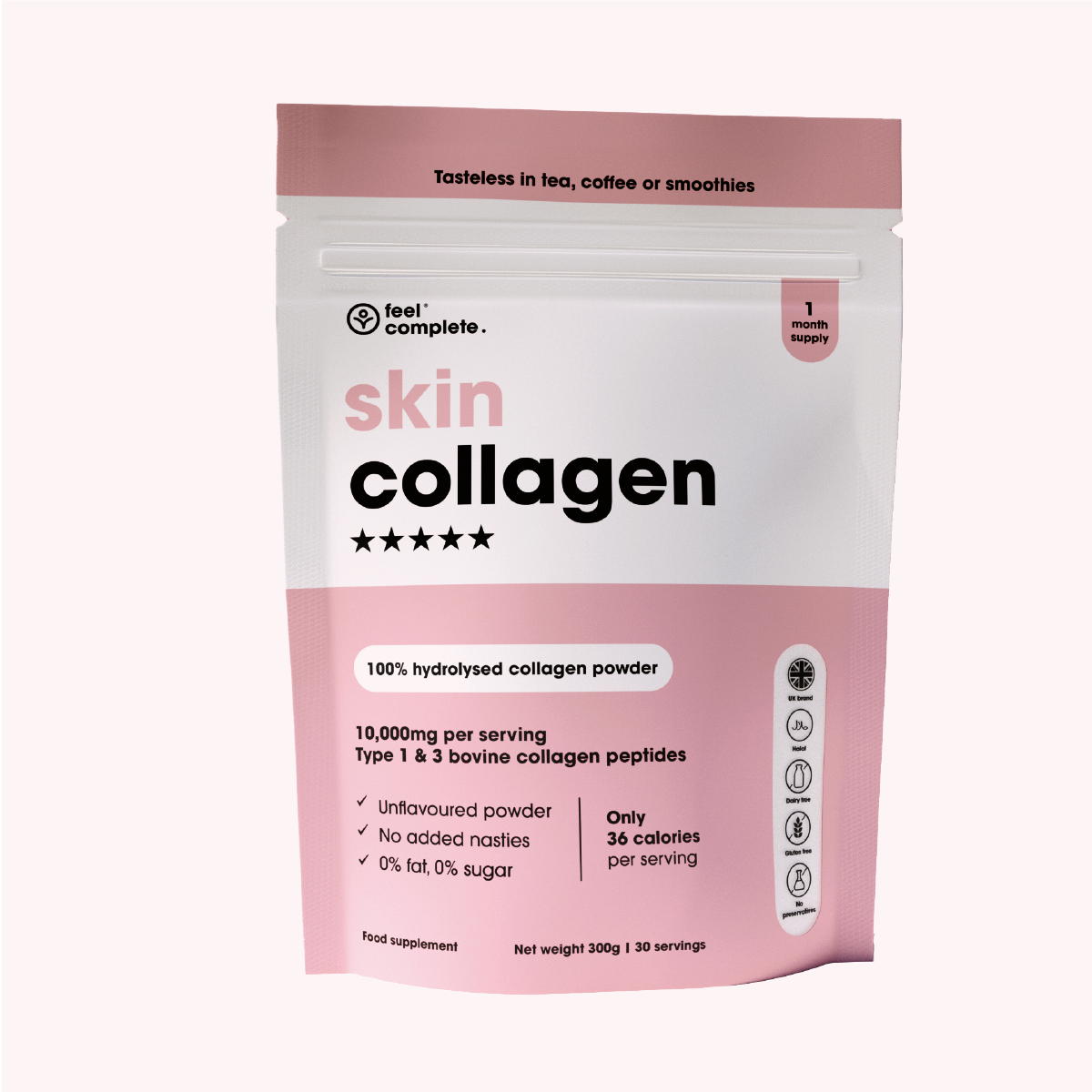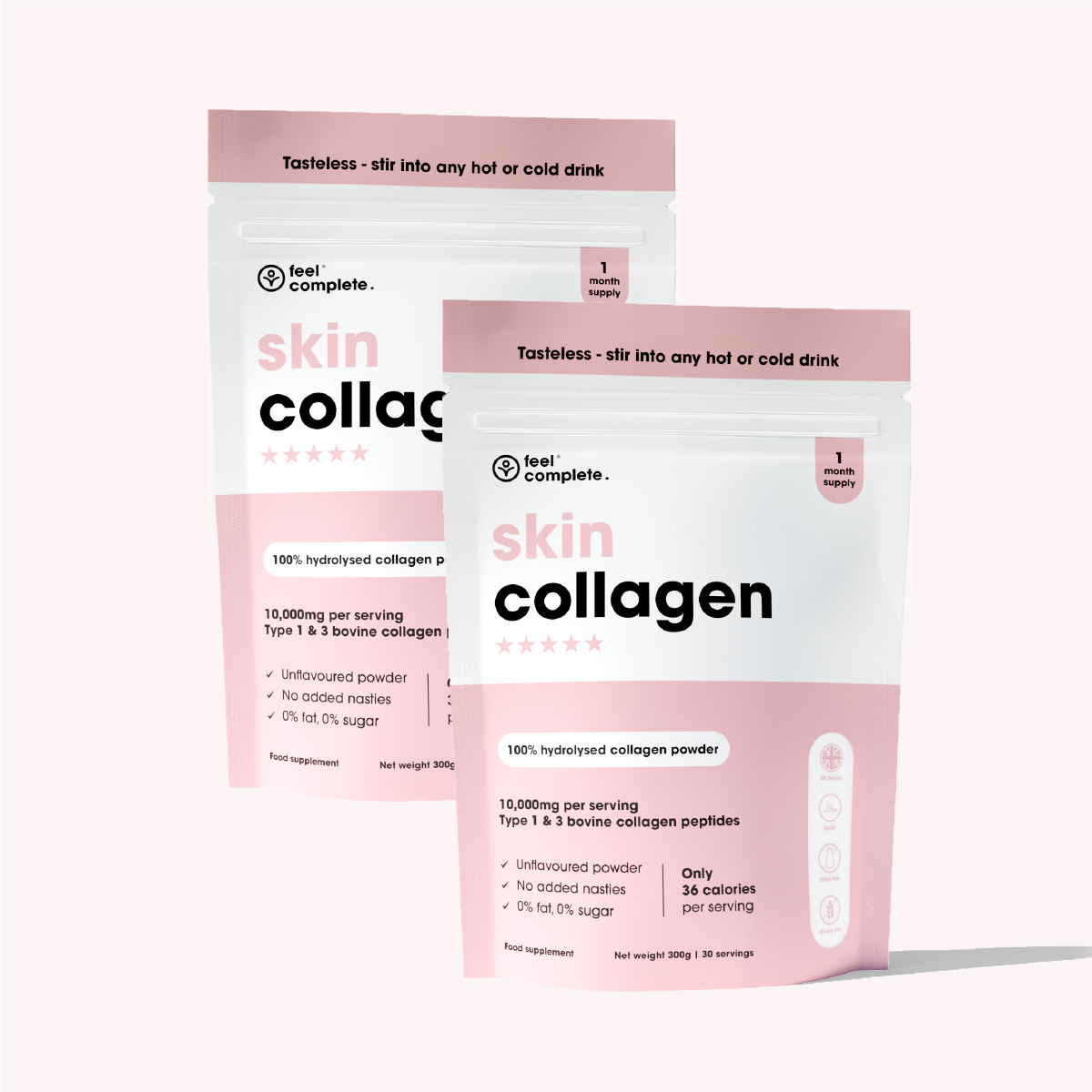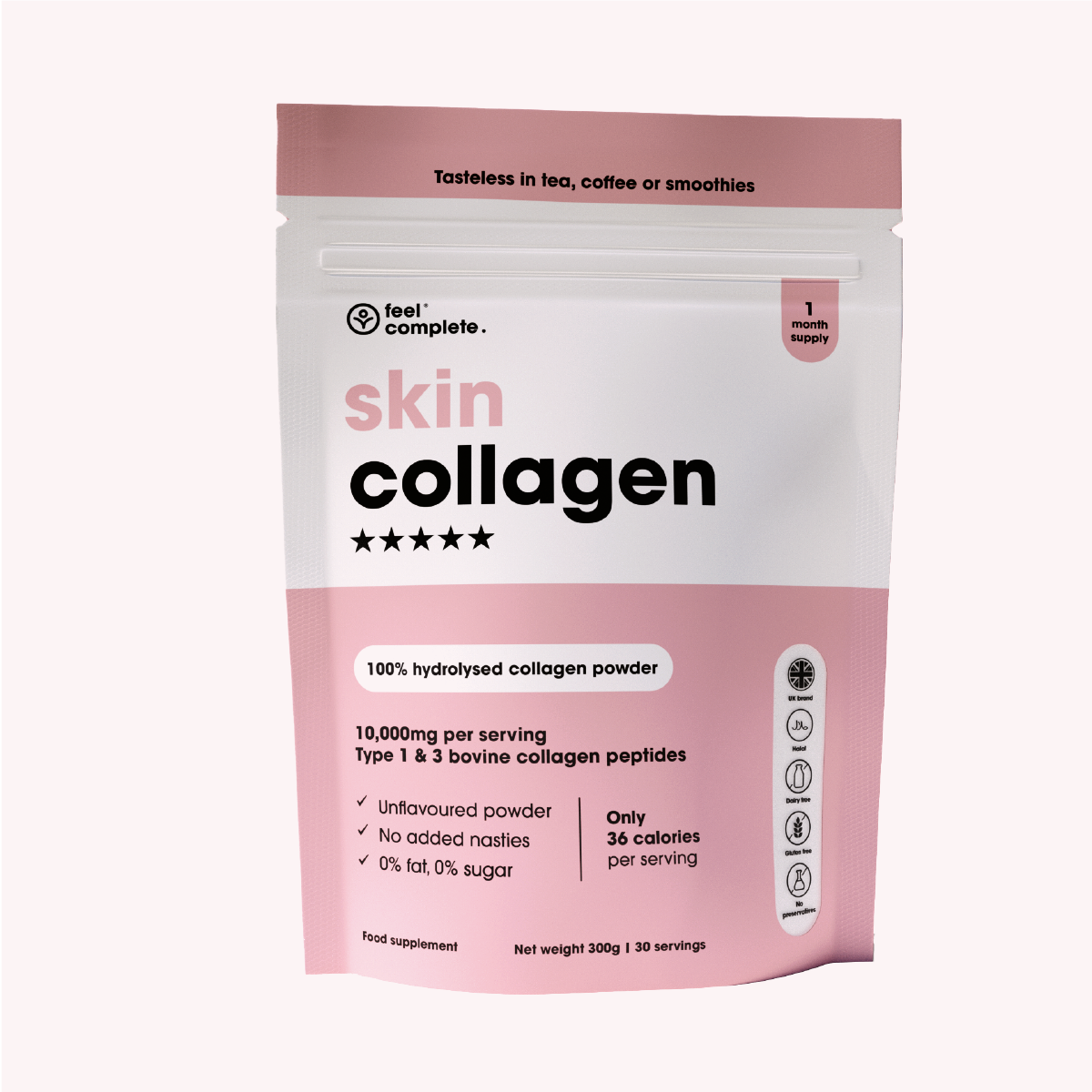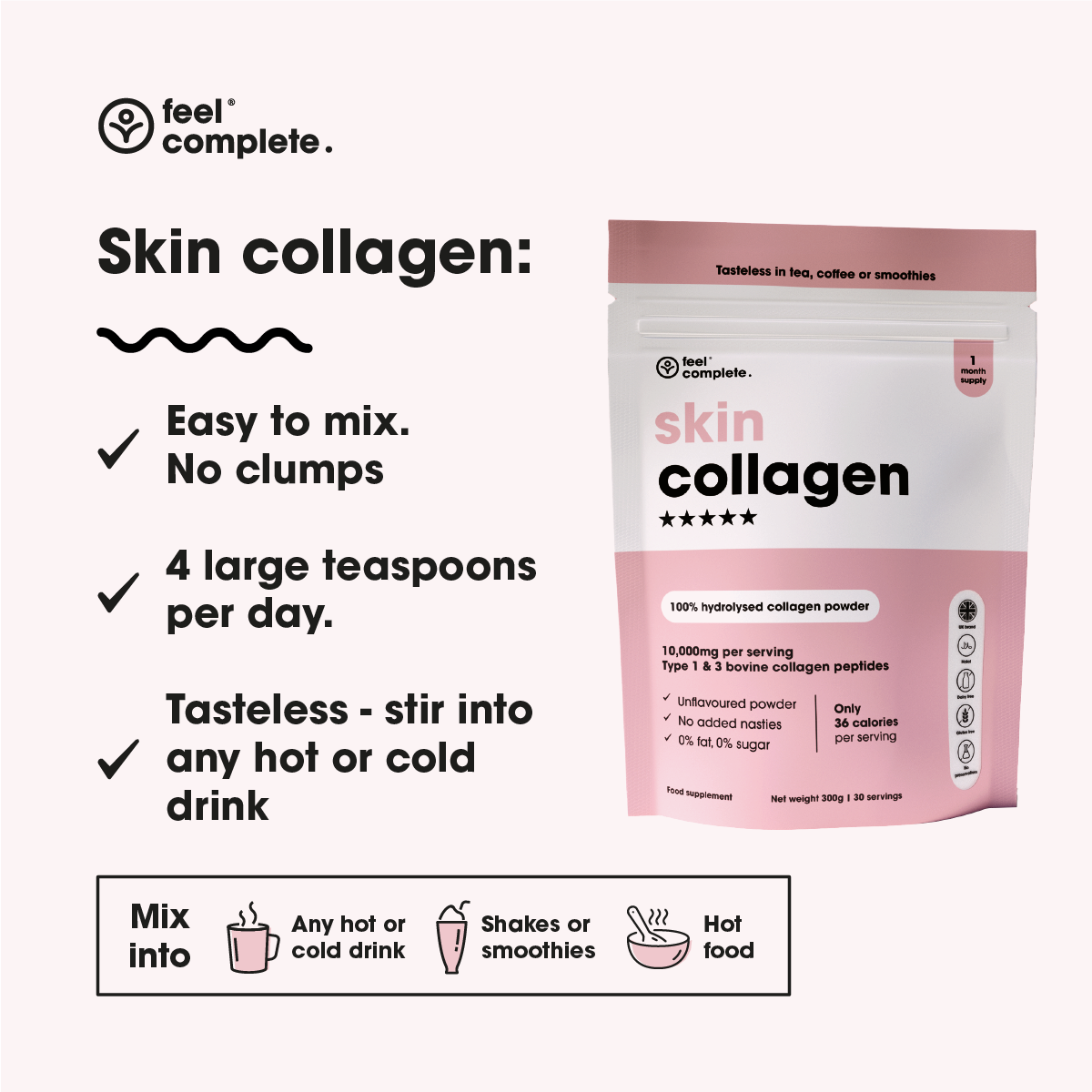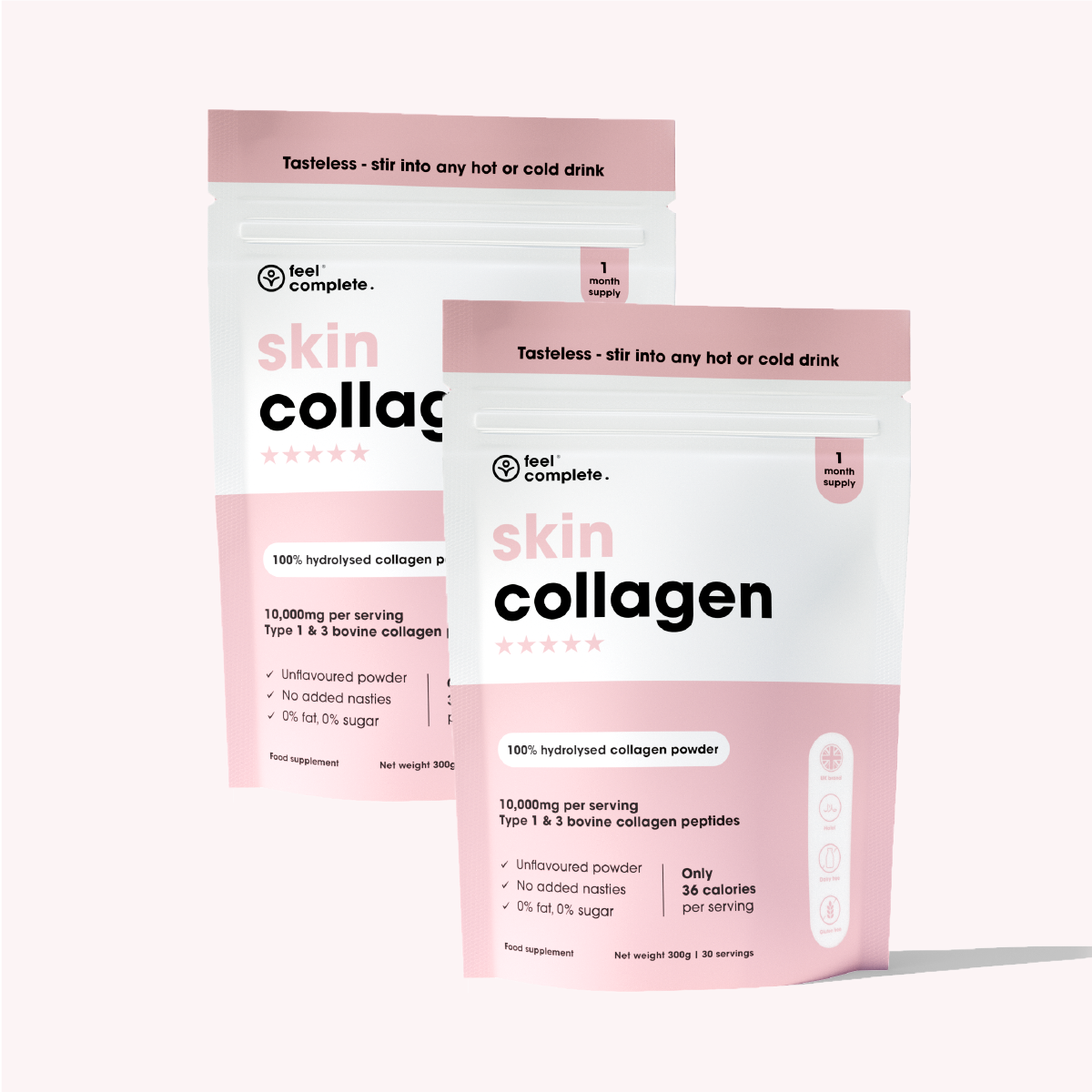Once upon a time, menopause was referred to as "the change." During the Victorian era, women were subjected to leeching, cold baths, and sedatives as treatments for menopause (1). Fortunately, times have changed, and menopause is now a widely discussed topic. The impact of this significant life phase can be transformative, and coping with the numerous accompanying symptoms is no small feat. In this article, we explore one essential support for the body during menopause: collagen.
Understanding Menopause
Menopause typically occurs in a woman's late 40s to early 50s when her ovaries cease to produce eggs, leading to a decline in hormone levels, particularly estrogen and progesterone. This hormonal shift can result in a range of symptoms that significantly affect a woman's quality of life.
Collagen's Role in Menopause
Collagen is the most abundant protein in the human body, responsible for providing structure, strength, and stability to the skin. During the initial four years of menopause, collagen synthesis decreases by a staggering 30% (2). This decline continues at a rate of 2% per year, contributing to the development of wrinkles and other visible signs of ageing. Reduced estrogen levels can also lead to decreased skin elasticity, moisture loss, and bone thinning, increasing the risk of osteoporosis and fractures.
The Benefits of Collagen
Collagen plays a dual role in maintaining skin health. It serves as the building blocks for collagen production and binds to fibroblasts in dermal layers, stimulating the synthesis of collagen, hyaluronic acid, and elastin (3,4). By supplementing with collagen peptides, you reintroduce these essential building blocks, supporting collagen production and mitigating skin ageing.
However, the benefits of collagen extend beyond skin health. Collagen constitutes a significant portion of the body's structure, making up 70% of the skin's composition. It is crucial for the health of bones, muscles, tendons, ligaments, and various other bodily tissues. Collagen also contributes to the structural integrity of blood vessels, teeth, cartilage, and the digestive tract—think of it as the "glue" that holds our bodies together.
Here are some key benefits of collagen supplementation during menopause:
Joint and Bone Health
Menopause is associated with an increased risk of osteoporosis and joint pain. Collagen can help by supporting cartilage regeneration, reducing joint pain and stiffness, and enhancing bone density.
Hormonal Balance
While collagen itself does not directly affect hormone levels, its amino acids can indirectly support hormonal balance. Amino acids are the building blocks of hormones, and a balanced diet that includes collagen can contribute to overall hormonal health during menopause.
Gut Health
Many menopausal women experience digestive issues. Collagen contains the amino acid glycine, which can promote a healthy gut lining, reduce inflammation, and aid in digestion.
A Holistic Approach
In postmenopausal women, collagen can promote skin elasticity, recovery of lost cartilage tissue, reduced joint pain, strengthened tendons and ligaments, increased lean body mass, and improved bone mineral density (5).
As you can see, collagen offers a simple and effective way to support your overall well-being during menopause. Our skin collagen is a tasteless powder, providing a healthy daily dose of 10g that can be seamlessly added to any drink or meal. Embrace this natural solution and stir in some wellness.
References:



